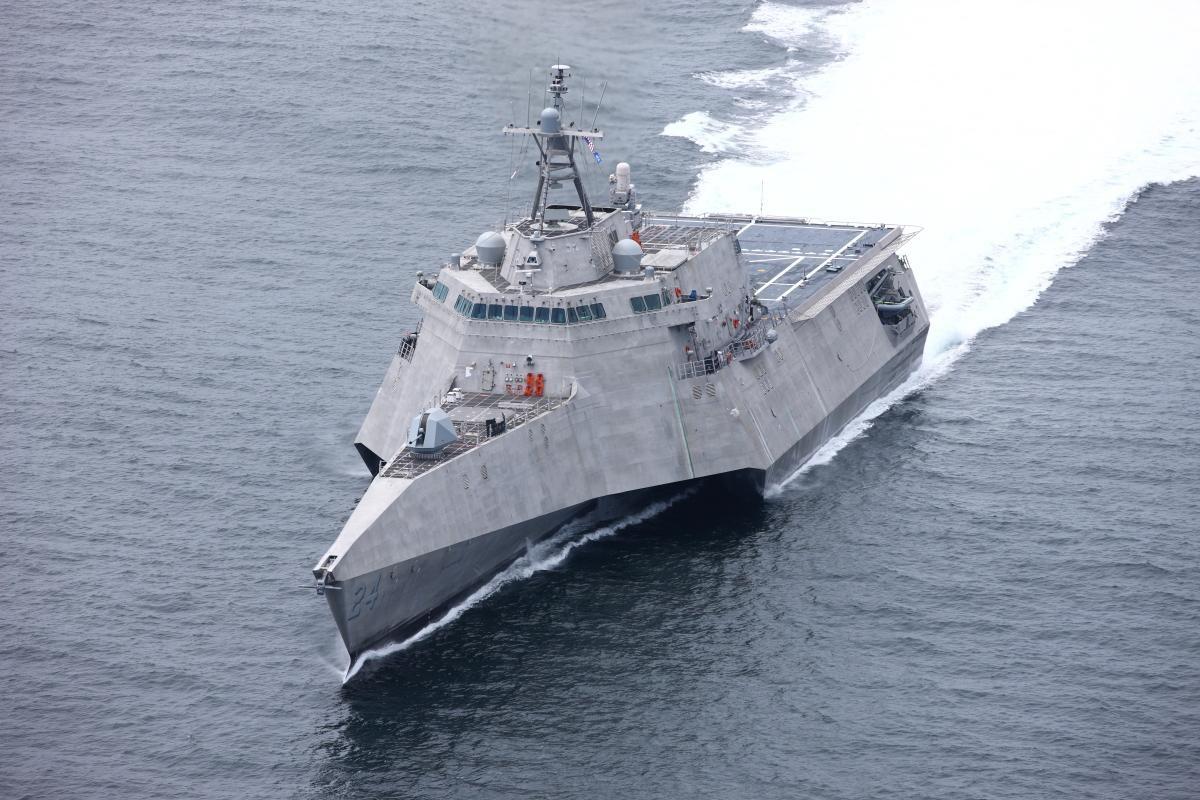It looks like the United States has changed Australia’s mind. In April, the Australians doubted private shipbuilder Austal could be sold to South Korea’s Hanwha Ocean, but now they have no concerns.
The most likely explanation is that Australia at first worried about what the US would think but found that the Americans thought it was not a bad idea.
The main consideration on the Austal side was US regulation related to the sensitivity of the company’s operations. As Austal owns Austal USA, which builds ships for the US Navy and Coast Guard, Hanwha Ocean’s acquisition of Austal would need approvals from major US government bodies, including the Committee on Foreign Investment and the Defense Counterintelligence and Security Agency.
While Hanwha Ocean argued that the acquisition would benefit many stakeholders, Austal said on 2 April it was ‘not satisfied that these mandatory approvals would be secured’.
But on 1 May, Defence Minister Richard Marles said: ‘Ultimately, this is a matter for Austal. They are a private company.’
‘From the government’s perspective, we don’t have any concern about Hanwha moving in this direction.’
There was no hint of hesitation that might reflect reservations in Washington.
So what happened? Quite likely, Washington told Canberra that, actually, it would be quite satisfied in working with Hanwha Ocean through Austal.
About a month before Hanwha Ocean announced its bid for Austal, US Secretary of the Navy Carlos Del Toro visited South Korea. His trip included Hanwha Ocean shipyards. He expressed interest in further cooperation in maintenance of US warships in these shipyards. Moreover, he even invited Dong Kwan Kim, a vice chair of Hanwha Group, to the US to further discuss maintenance cooperation. Later, Del Toro told the Navy League’s annual Sea-Air-Space conference that he was ‘floored’ by South Korea’s shipbuilding industry.
The US would like to ‘attract the most advanced shipbuilders in the world to open US-owned subsidiaries … here in the US’, he said, interest in inviting Hanwha Ocean to do so. If that’s his attitude, the US regulations that have concerned Austal cannot be a significant problem. The US is not concerned with using South Korean shipbuilders.
US admiration for the low costs of the South Korean naval builders and its willingness to work with them may not be the main reason behind Washington’s apparent comfort with Hanwha Ocean’s bid. A larger factor may be its desire to see its Pacific allies, notably Japan, South Korea and Australia, develop security relationships with each other. The Biden administration has repeatedly encouraged multilateral security cooperation beyond the conventional hub-and-spoke arrangement in which several Western Pacific countries are allies with the United States but not with each other. It has been particularly active in pushing its allies to work together in maritime security.
Moreover, it is particularly aiming to enhance the relationship between Japan and South Korea, as was evident at the Camp David Summit of the three countries in 2023. They made a joint statement expressing mutual commitment to regional security challenges. It was the first time that the trilateral summit had directly addressed the Taiwan and South China Sea issues together.
Since then, South Korea and Japan have increased maritime cooperation in the breadth and frequency of exercises. Australia and Japan, meanwhile, have been stepping up defence cooperation.
Hanwha Ocean buying Austal would further South Korean and Australian cooperation. The two countries mutual interests in 2+2 meeting on 1 May and have recognised South Korea’s potential contribution to AUKUS Pillar 2, the part of the Australian-British-US security partnership focused on technology other than nuclear submarines.
Ownership by Austal by Hanwha Ocean, one of three main shipbuilders for the Republic of Korea Navy, would increase the chance of Australia choosing the South Korean Daegu class for a program to build 11 general-purpose frigates as replacements for the current Anzac class. Three other foreign designs are also contenders. The Daegu design, of 3600 tonnes displacement at full load, was developed by DSME, which has become the core of Hanwha Ocean.
Whichever designer is chosen, the first three frigates of the new Australian class will be built abroad.
If Hanwha Ocean can buy Austal, it could offer corporate integration of the foreign and local side of the design and construction effort and, implicitly, smoother management.


